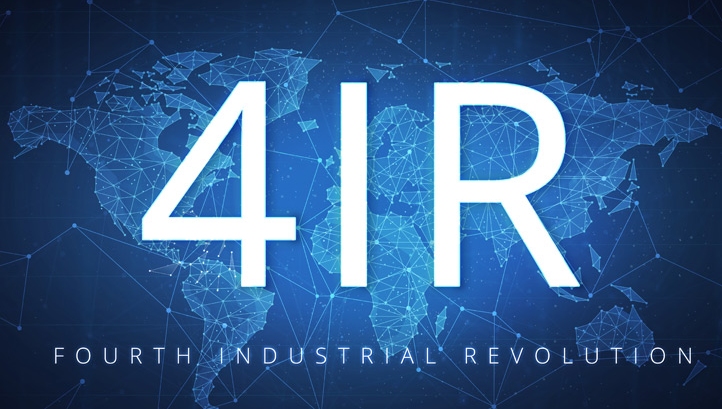TECH WORLD
How Nigeria can exploit the Fourth Industrial Revolution, by Danbatta
Published
5 years agoon

How Nigeria can exploit the Fourth Industrial Revolution, by Danbatta
- By Olamide Onabanjo
Read Also:
Umar Danbatta, the executive vice chairman of the Nigerian Communications Commission (NCC) has given hints on how the country can benefit abundantly from the ongoing fourth Industrial Revolution (4IR).
Danbatta gave the hint while delivering a Keynote address at the Virtual 3rd Discourse Series of The Advocaat Law Practice which held recently.
The Fourth Industrial Revolution is the ongoing automation of traditional manufacturing and industrial practices, using modern smart technologies.
According to the NCC boss, “Nigeria can only maximize the potentials of the 4th Industrial Revolution if we articulate effective and forward-looking policy instruments to guide our emergence into the future digital landscape.

Danbatta
“If we ensure the ubiquitous presence, the seamless operation and the cost-effective availability of communications infrastructure which will power the digital aspirations of all sectors of the Nigerian economy and ensure that national competitiveness is guaranteed.
“… and if we deploy effective regulatory instruments and harness the efforts of all critical Stakeholders so that we can derive the utmost benefits from the 4th Industrial revolution and not be reduced to digital laggards, spectators, or, merely a consumptive class.”
He said that the NCC’s Strategic Management Plan (SMP 2020-2024 or “ASPIRE 2024”) consolidated on the vision it earlier articulated in the Strategic Vision Plan and 8-Point Agenda.
He said the commission is working to harness the immense socio-economic benefits of ICT for national development; to ensure that ICT infrastructure are up to the standard necessary to provide ubiquitous broadband services in Nigeria; and to align the Commission’s regulatory efforts with the aforementioned Policy Instruments.
He added that NCC’s policies also align with the growth strategies of the International Telecommunications Union (ITU) to ensure growth, inclusiveness, and sustainability.
According to him, the commission has so far recorded a number of significant achievements in this regard such as the licensing of six infrastructure companies (InfraCos) to speed up the deployment of broadband infrastructure throughout Nigeria.
He added that NCC is training and supporting public institutions with ICT intervention initiatives like School Knowledge Centers, ADAPTI etc.
Danbatta explained that enhancement of physical infrastructure has also been a key focus of the commission with achievements to show in the last few years.
He said: “In the last five years, the Commission has expanded broadband penetration from 6 per cent to 42.06 per cent as at February 2021.
“Access gap clusters have been reduced from 207 to 114; Fibre Optic coverage has increased from 47,000km to 54,725 km and Base Transceiver Stations for 3G and 4G deployments have increased from 30,000 to 53,460.
“A full-fledged department of Digital Economy has been created (within the NCC) to support Federal Government’s Digital Economy agenda. We also increased funding of Telecom Research to N336.4 million and have endowed four Professorial Chairs.
“We have also commenced requisite engagements on 5G deployments and some of our licensees have already carried out trials.”
Danbatta expressed optimism that these strides will enable the telecommunications sector provide the infrastructure backbone for powering the Fourth Industrial Revolution in Nigeria.
“We are firmly committed to ensure that Nigerians in Nigeria play a leading role in Artificial Intelligence, Cloud Computing, Internet of Things (IoT), Robotics, Blockchain, Autonomous Vehicle, Drones and other innovative technologies which are now driving growth and national competitiveness,” he said.
The NCC boss stated that the question of regulation of disruptive technologies without stultifying innovation is one that NCC, like all other regulators globally, is carefully studying.
“For now, we have maintained a sharp focus on critical cross-cutting aspects like consumer protection, enhancement of competition, data protection and enhancement of trust in digital platforms through the prevention of cybercrimes and other abuses,” he said.
Share this:
- Click to share on X (Opens in new window) X
- Click to share on Facebook (Opens in new window) Facebook
- Click to share on WhatsApp (Opens in new window) WhatsApp
- Click to share on Pocket (Opens in new window) Pocket
- Click to share on Telegram (Opens in new window) Telegram
- Click to email a link to a friend (Opens in new window) Email
- Click to share on LinkedIn (Opens in new window) LinkedIn
